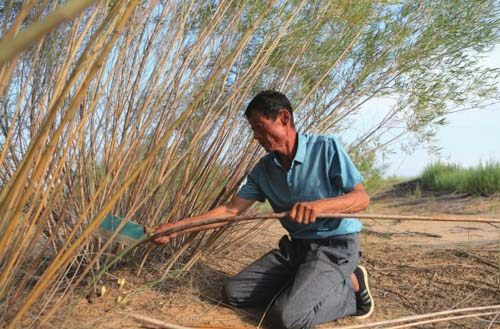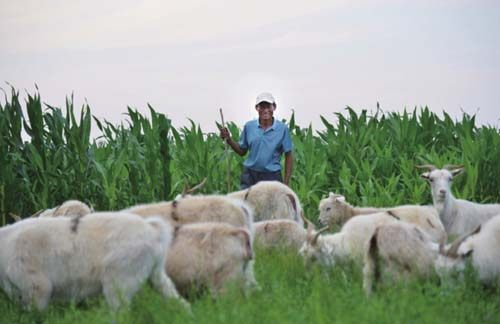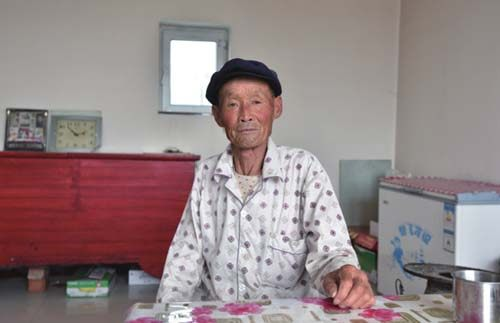论文部分内容阅读
Looking into the distance from his backyard, Gao Eryun sees a view full of vitality. Herds of goats graze on the grassland and cornstalks grow as tall as a person. But over 30 years ago, his home, Guanjing Village—located on the edge of the Kubuqi Desert in Ordos, north China’s Inner Mongolia Autonomous Region—was covered with sand. The person who made the transformation possible was his father, Gao Linshu.
Back in the 1980s, Guanjing was plagued by frequent sandstorms, making it almost impossible to grow crops. Most of the villagers left home to earn a living.
But the year 1986 was a turning point. After obtaining the land use rights to 53 hectares of sandy land, Gao Linshu decided to plant trees. Following five years of hard work by the entire family, vegetation grew and the soil condition improved. To date, Gao Linshu and his family have planted trees covering a total of 333 hectares.
By growing and selling oil-seed crops, Gao’s family became the first household to reach 10,000 yuan ($1,461) in savings. The practice was replicated by his fellow villagers and a number of them began to plant trees on contracted sand lands.
Today almost two thirds of the land in Guanjing is afforested. The tree-planting campaign has helped restore local ecology, boost production and lift people’s living standards. Currently, his family’s net income exceeds 150,000 yuan ($21,922).
Now 80 years old, Gao Linshu has passed on his greening legacy to his son. Apart from managing farmland and raising goats, Gao Eryun has also served as a forest ranger, protecting the fruits of the villagers’ labor for the past three decades.



Back in the 1980s, Guanjing was plagued by frequent sandstorms, making it almost impossible to grow crops. Most of the villagers left home to earn a living.
But the year 1986 was a turning point. After obtaining the land use rights to 53 hectares of sandy land, Gao Linshu decided to plant trees. Following five years of hard work by the entire family, vegetation grew and the soil condition improved. To date, Gao Linshu and his family have planted trees covering a total of 333 hectares.
By growing and selling oil-seed crops, Gao’s family became the first household to reach 10,000 yuan ($1,461) in savings. The practice was replicated by his fellow villagers and a number of them began to plant trees on contracted sand lands.
Today almost two thirds of the land in Guanjing is afforested. The tree-planting campaign has helped restore local ecology, boost production and lift people’s living standards. Currently, his family’s net income exceeds 150,000 yuan ($21,922).
Now 80 years old, Gao Linshu has passed on his greening legacy to his son. Apart from managing farmland and raising goats, Gao Eryun has also served as a forest ranger, protecting the fruits of the villagers’ labor for the past three decades.


